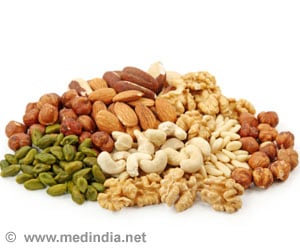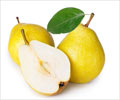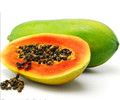Soaking dried fruits enhances nutrient absorption and digestion, making them a healthier addition to your diet.
- Soaking dried fruits breaks down phytic acid, enhancing nutrient absorption
- Soaked dried fruits are easier to digest, benefiting those with sensitive stomachs
- Incorporating soaked dried fruits into meals and snacks boosts overall nutrition
Dried fruits: excellent in vitro and in vivo antioxidants
Go to source). Soaking dried fruits can enhance their nutritional value and make them easier to digest, providing a natural way to boost your health.
According to Ayurveda, soaking dry fruits diminishes their heating potency, making them more digestible for persons with digestive issues and Pitta dosha imbalance. #HealthyEating #nutrientboost #soakedfruits #medindia’
Health Benefits of Soaked Dried Fruits
Enhanced Nutrient Absorption
One of the primary benefits of soaking dried fruits is enhanced nutrient absorption. Soaking can break down phytic acid, a compound found in nuts and seeds that can inhibit the absorption of essential minerals like calcium, iron, and zinc (2✔ ✔Trusted Source
Reduction of phytic acid and enhancement of bioavailable micronutrients in food grains
Go to source). By reducing phytic acid levels, soaking allows your body to absorb these crucial nutrients more effectively. This means that soaked dried fruits can be more beneficial than their unsoaked counterparts in terms of nutritional value.
Improved Digestibility
Soaking dried fruits makes them easier to digest. The process helps to soften the fruits, breaking down complex sugars and fibers, which can be hard on the digestive system. For individuals with sensitive stomachs or digestive issues, soaked dried fruits can be a gentler alternative that still provides all the nutritional benefits. Improved digestibility also means that your body can more efficiently extract and use the nutrients from the fruits.
Ayurvedic Perspective of Eating Soaked Dried Fruits
Reduced Ama formation
Ama refers to toxins or undigested material that can build up in the body and impair metabolic health as well as gut health. Soaking nuts lessens the formation of ama, which promotes better digestion and prevents the accumulation of undigested material, thus boosting overall health.
Balancing the Doshas
Ayurveda recognizes three doshas that control the human body: Vata, Pitta, and Kapha. Imbalances in these doshas might cause a variety of health concerns. However, consuming soaked nuts and dried fruits is thought to have a relaxing effect, particularly on the Vata dosha, and helps to balance it.
Easy Ways to Incorporate Soaked Dried Fruits into Your Diet
Adding soaked dried fruits to your diet is easy and versatile. Here are some simple ways to enjoy them:Morning Boost
Start your day with a boost of energy by adding soaked dried fruits to your breakfast. Mix them into your oatmeal, yogurt, or smoothie for a nutritious and delicious start to your day.
Healthy Snacking
Keep soaked dried fruits on hand for a quick and healthy snack. They are portable and convenient, making them perfect for on-the-go nourishment.
Baking and Cooking
Incorporate soaked dried fruits into your baking and cooking. Use them in muffins, breads, and salads, or add them to savory dishes like pilafs and stews for a touch of natural sweetness.
Soaked dried fruits are a powerhouse of nutrition, offering numerous health benefits. From enhanced nutrient absorption and improved digestion to providing essential vitamins, minerals, and antioxidants, soaked dried fruits are a valuable addition to any diet. Whether you enjoy them as a snack, in your meals, or as a natural sweetener, incorporating soaked dried fruits into your daily routine can help you achieve better health and vitality. Embrace the goodness of soaked dried fruits and experience their nutritional benefits firsthand.
References:
- Dried fruits: excellent in vitro and in vivo antioxidants - (https://pubmed.ncbi.nlm.nih.gov/15670984/)
- Reduction of phytic acid and enhancement of bioavailable micronutrients in food grains - (https://pubmed.ncbi.nlm.nih.gov/25694676/)
Source-Medindia
















